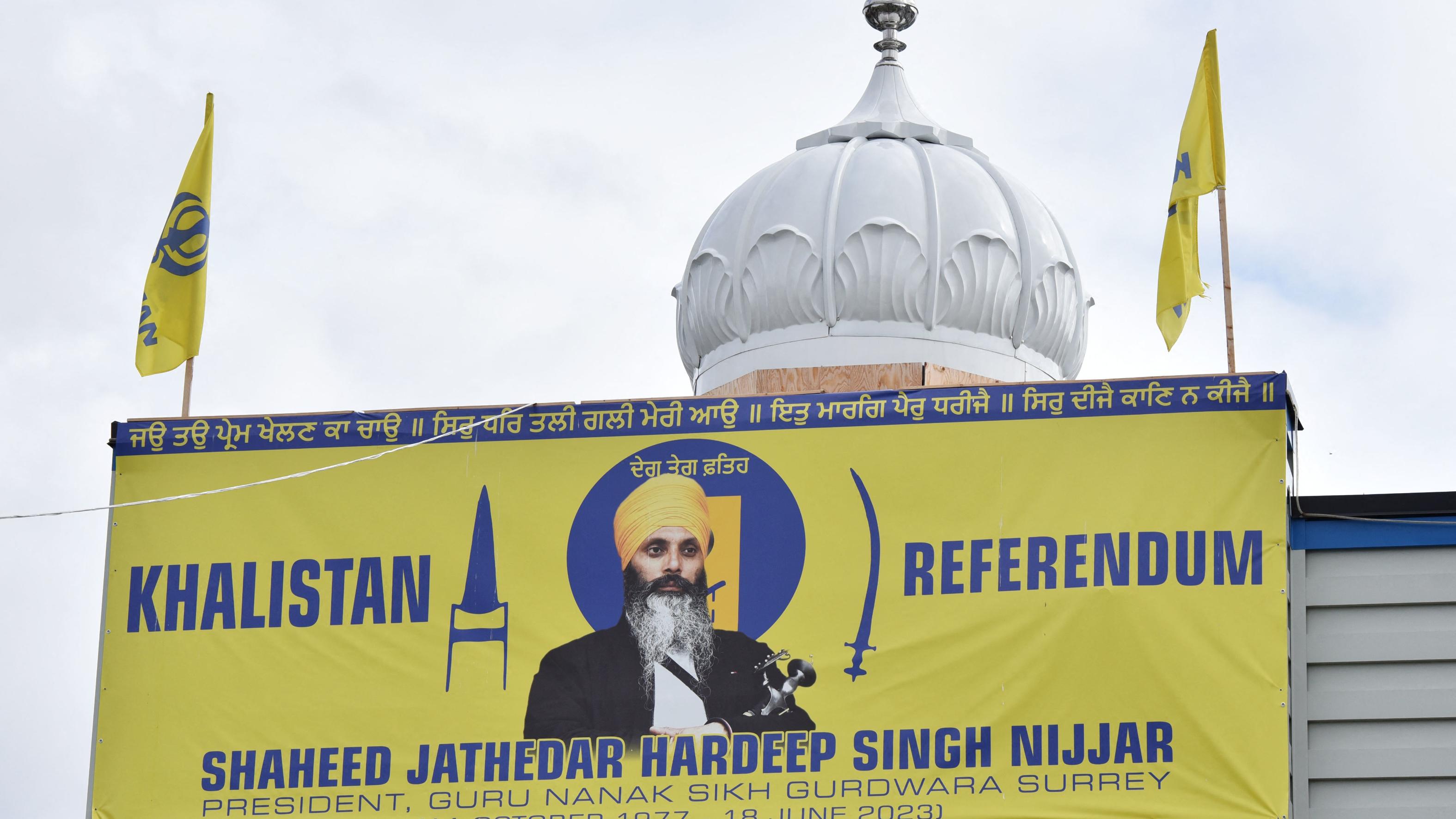Despite easing of visa curbs by New Delhi, breakthrough not achieved yet: Experts
 An image of former Gurdwara President Hardeep Singh Nijjar is displayed at the Guru Nanak Sikh Gurdwara temple in Surrey, British Columbia, Canada, on Sept 19, 2023. (PHOTO / AFP)
An image of former Gurdwara President Hardeep Singh Nijjar is displayed at the Guru Nanak Sikh Gurdwara temple in Surrey, British Columbia, Canada, on Sept 19, 2023. (PHOTO / AFP)
NEW DELHI/OTTAWA — Mending frayed diplomatic relations between India and Canada will be a long process with each side adopting maximalist positions, despite New Delhi's surprise move to ease some visa curbs on Canadians, officials and experts said.
India recently decided to partially restore visa services, weeks after suspending them in anger at Ottawa's claim that Indian agents may have been involved in the murder of a Canadian Sikh leader from Punjab state.
Mutual recriminations since that accusation, which India strongly denies, have strained ties between the two countries — close for almost a century.
While India's relaxation on visas may have raised some expectations of improved relations, it was not a breakthrough, as neither side has much incentive to hasten a return to normalcy, officials and experts in both countries said.
Neither New Delhi nor Ottawa looks likely to take dramatic steps to reconcile soon as Canada's murder investigation proceeds and Prime Minister Narendra Modi prepares for Indian national elections by May.
'Deep crisis'
"The relationship is in deep crisis, perhaps its worst ever," said Michael Kugelman, director of the South Asia Institute at the Wilson Center in Washington. "Each side may have a strong interest in the crisis not getting completely out of control, but that doesn't mean there are strong incentives to resolve the crisis."
Ajay Bisaria, India's ambassador to Canada from 2020 to 2022, said the relationship is in a "de-escalation phase" following "quiet diplomacy".
Despite the relaxation, the visa curbs are expected to hinder the movement of tens of thousands of Indians and people of Indian origin who live in Canada.
Although both governments have spared business and trade links, the acrimony has delayed discussions on a free trade deal.
On Sept 18, Canada's Prime Minister Justin Trudeau said Ottawa was "actively pursuing credible allegations" linking Indian government agents to the killing of Hardeep Singh Nijjar, 45, an ardent supporter of the Khalistan movement, in a Vancouver suburb, in June.
Canada expelled India's intelligence chief in Ottawa. India quickly responded by halting 13 categories of visas for Canadians and cutting Canada's diplomatic presence in India, a move Ottawa said violated the Vienna Convention on Diplomatic Relations.
On Oct 25, New Delhi said it would resume issuance of visas under four categories.
"This is not a thaw," an Indian foreign ministry official told Reuters. "People can read whatever they want into it."
Ottawa triggered the crisis and must take the first step toward climbing down from its position, another official said.
A senior Canadian government source said while Ottawa's ultimate goal was to return to where things were, unpredictability in coming months over the murder investigation and trial, as well as India's elections, could interfere.
"This is a difficult moment," the source said.
Officials in India and Canada spoke on condition of anonymity as they were not authorized to speak on the subject.
The Indian Foreign Ministry did not respond to a request for comment. Canada's Foreign Ministry pointed to comments made by Foreign Minister Melanie Joly on Oct 30.
"We have a long-term approach when it comes to India because this is a relationship that has spanned decades, and we all know that we have very strong people-to-people ties with the country," Joly said, adding she continued to talk to her Indian counterpart.
Despite the "modest de-escalation" over visas, Kugelman from Washington said most of the retaliatory measures remain "and there's still a lot of anger on both sides. So we shouldn't overstate the de-escalatory potential here".
Michael Bociurkiw, a foreign policy expert at the Atlantic Council, a US think tank, said "a pause" was needed "for cooler heads to prevail and to get the relationship back on track"


